Why Is CBD Third-Party Testing Important?
Summarize
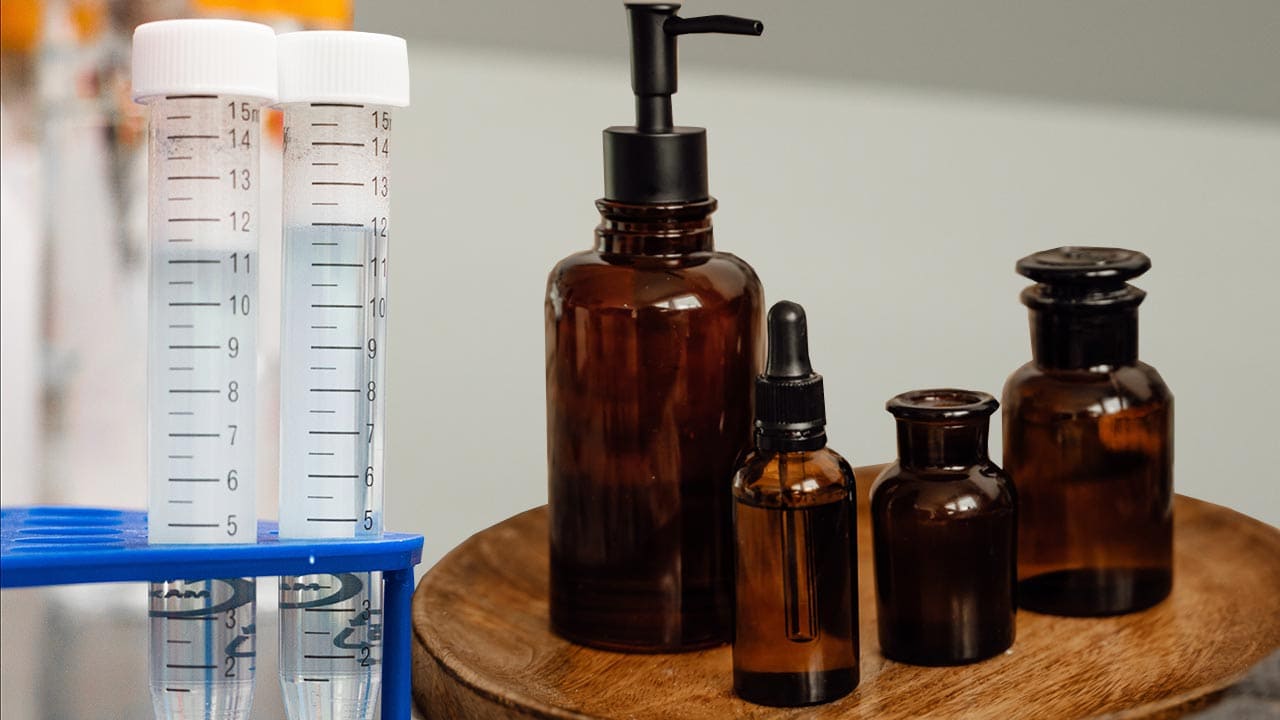
Reputable CBD producers always have their CBD oil third-party tested to give consumers visibility into the contents of their CBD products. CBD is not regulated by the Food and Drug Administration (FDA), which means you must rely on CBD testing by a laboratory to know for sure what is in the product. The results of the CBD lab tests performed by independent labs are reported in the Certificate of Analysis (COA).
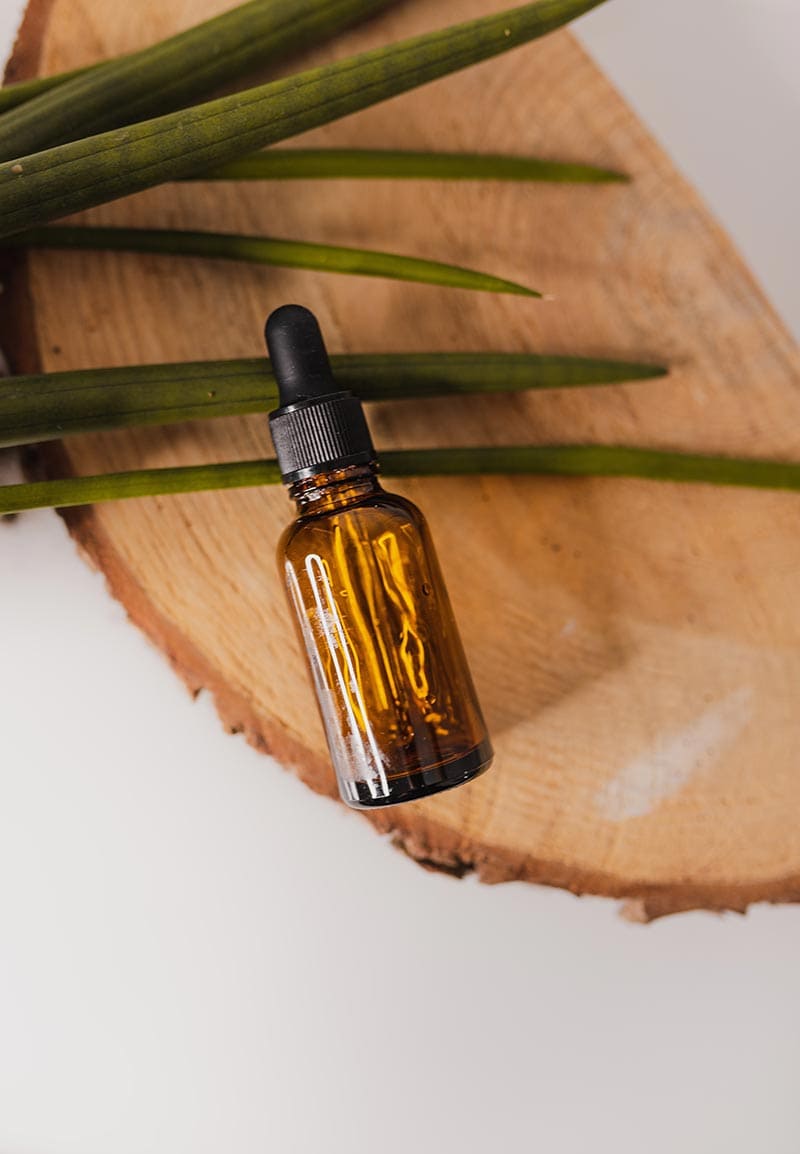
TL;DR (Too Long; Didn’t Read):
CBD testing by an independent third-party lab is extremely important because it verifies the product’s contents. Testing identifies things like CBD mg/g, the types of other cannabinoids and the presence of residual solvents, mycotoxins and pesticides, among other information. The lab testing results are reported in the Certificate of Analysis (COA), so you know what is in the CBD oils and tinctures, softgels, or capsules, etc. You can compare the COA results to the product’s label to verify that the CBD brand has truthful labeling.
Table of Contents
What is Third-Party Testing?
How do you know you can trust any edible or supplement product? You read the label, of course, but you can only place a level of trust in labeling when the product is regulated by the FDA if there is no other information available. The FDA does not regulate CBD yet, but it does regulate delta-9 THC in any product, per the Hemp Farming Act of 2018. The Farm Bill legalized industrial hemp as long as it does not have a concentration of more than 0.3 percent THC per dry weight.
Due to the lack of CBD regulation, you need another way to verify all the cannabinoids and other elements in the CBD product. Third-party lab-tested CBD products have undergone a controlled analysis by an independent laboratory, not an entity of the CBD manufacturer. Third-party verification allows you to compare what the label says and what is actually in the product.
While the CBD brand’s in-house quality testing is important during the production process, you want an independent analysis of the CBD product. One piece of information you should look for is that the lab is independent.
CBD lab tests use a sample from a product batch to identify the compounds in the industrial hemp plant. The test provides the information you need to determine if the company is honest about its product’s contents and ensure that no unwanted compounds like pesticides and other toxins exist.
What is a Certificate of Analysis?
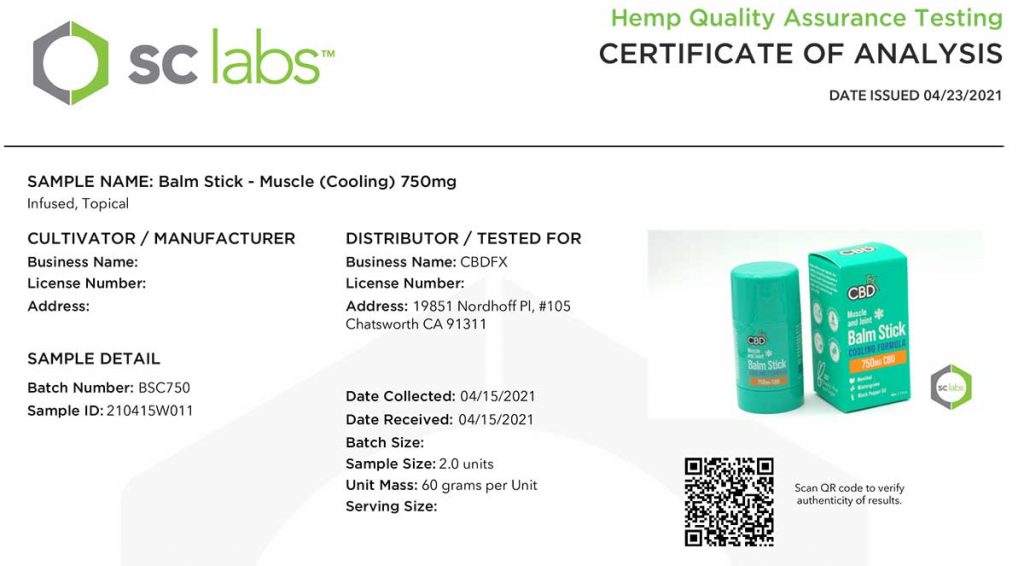
The Certificate of Analysis (COA) is a report issued by a third-party lab that shows the result of lab testing of products, enabling you to identify the product’s contents. The COA also verifies that the product does not exceed the legal amount of delta-9 THC.
The COA contains information like the name of the lab doing the CBD testing, the product’s batch or lot number, the ingredients being verified through testing, the test results, and the signature of the lab person reviewing the report. That is the basic information. Some reports only provide basic information, while others supply many details.
CBD testing is similar but not identical to third-party lab testing for supplements. In the way of government, CBD products are not labeled as supplements because several FDA-approved drug products and products are being investigated that contain CBD-derived compounds as an ingredient. The FDA-approved products were placed on the controlled substance list. This put CBD in limbo for other non-FDA approved products in terms of the use of the word “supplement.”
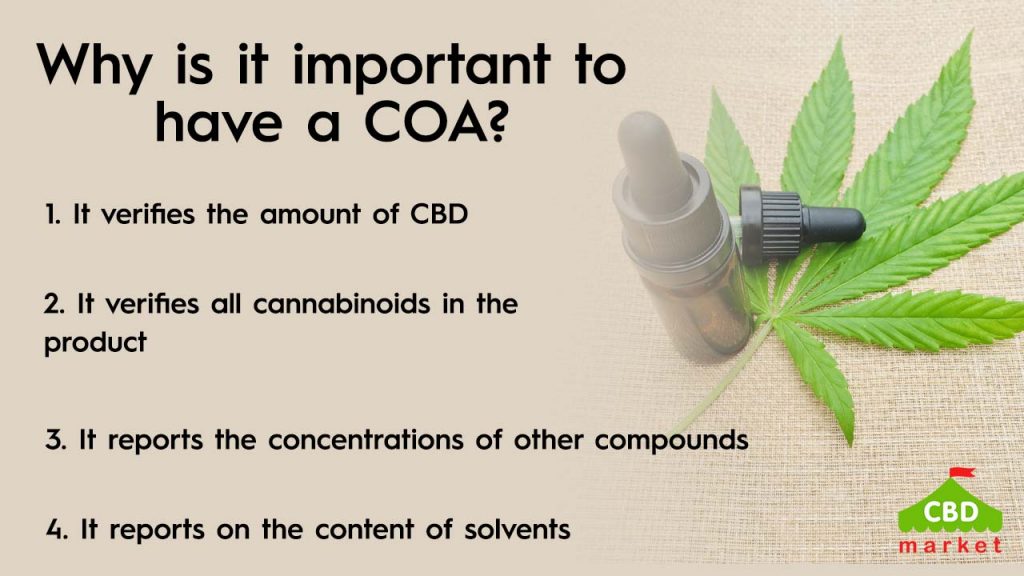
Consumer Benefits of Third-Party Testing
Each third-party lab decides what it will report on the COA and its format. A COA may have only basic information, like a cannabinoid profile, but some reports are comprehensive and show details of all compounds, including items like terpenes and heavy metals. The following is a list of some of the information and benefits you get by accessing the COA.
- Provides details about product potency (CBD potency)
- Identifies CBD spectrum
- Reports the cannabinoid profile that includes major and minor cannabinoids, i.e., CBD, CBG, CBN, CBDA, CBDV, CBDA, CBD, etc. and total cannabinoids
- Verifies the amount of delta-9 THC by weight and concentration (milligrams per gram)
- Reports the profile of terpenes which are aromatic hydrocarbons
- Gives you an unbiased report of product ingredients
- Gives visibility into ingredients from batch to batch, which lets you know if there is quality testing by the CBD producer from end-to-end during manufacturing
- Gives buyers confidence in the product’s quality
- Assures that the contents match what the label says
- Provides information about the presence of toxic ingredients like pesticides, mycotoxins, residual solvents, heavy metals and fungi
CBD product testing may also give you confidence that there are no compounds that you may be allergic to or that may interact with your medications.
What to Do When the COA is Not Available?
Unfortunately, there are CBD products sold in the marketplace with false labeling. Since the FDA does not regulate CBD products, third-party lab testing is the premier way to identify quality CBD products with accurate labeling and no toxic ingredients like pesticides.
Some companies also have earned third-party cGMP certification. cGMP is the acronym for certified Good Manufacturing Practices, meaning the company met standards established by the Federal Food, Drug and Cosmetic Act. It is a difficult certification to earn because of the strict standards that must be met. The GMP certification only applies to a specific facility, meaning each facility must earn certification. If the COA is not available, you should not purchase the product.
At CBD.market store you will find a link on the product page that takes you to the online CBD lab test reports.
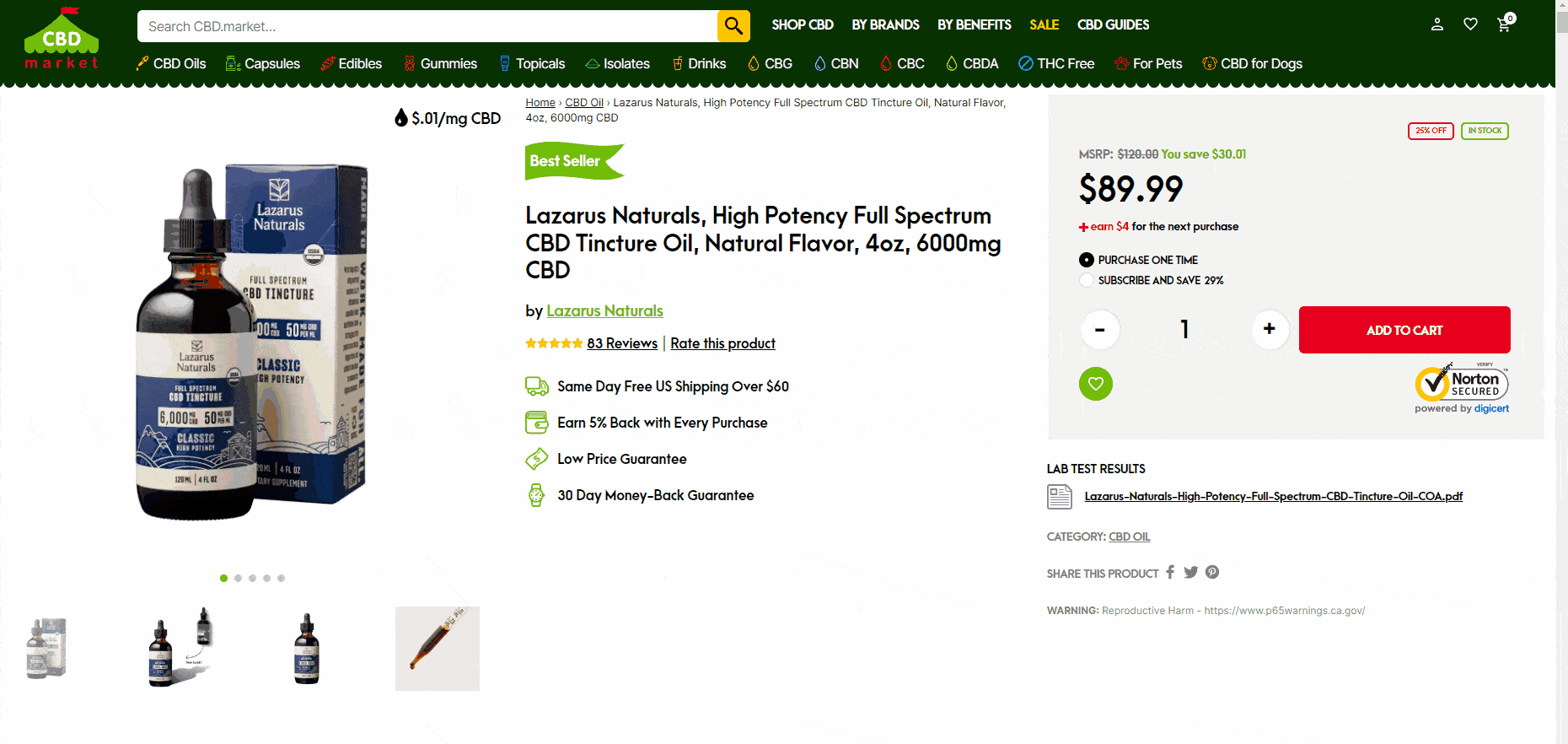
There may also be a QR code on the product’s label that will lead you directly to the lab report online. Without access to the results of CBD third-party testing, you cannot know if the labeling is accurate.
Be a Smart Shopper
Having information like the cannabinoid profile or that a product is THC-free helps you choose the best product for your needs. The Certificate of Analysis prepared by a third-party lab gives you that information. Without the COA, there is no product transparency. That opens the door to false labeling by unreliable companies or enables the company to hide ingredients by using generic terms like “cannabinoids” without telling you how much CBD and other cannabinoids it contains. There are many high-quality CBD brands today, and CBD third-party testing, as reported in the COA, is one way to identify them.
Sources
- https://www.fda.gov/consumers/consumer-updates/dietary-supplements
- https://www.congress.gov/bill/115th-congress/house-bill/5485
- https://www.fda.gov/news-events/public-health-focus/fda-regulation-cannabis-and-cannabis-derived-products-including-cannabidiol-cbd
Share this post


0